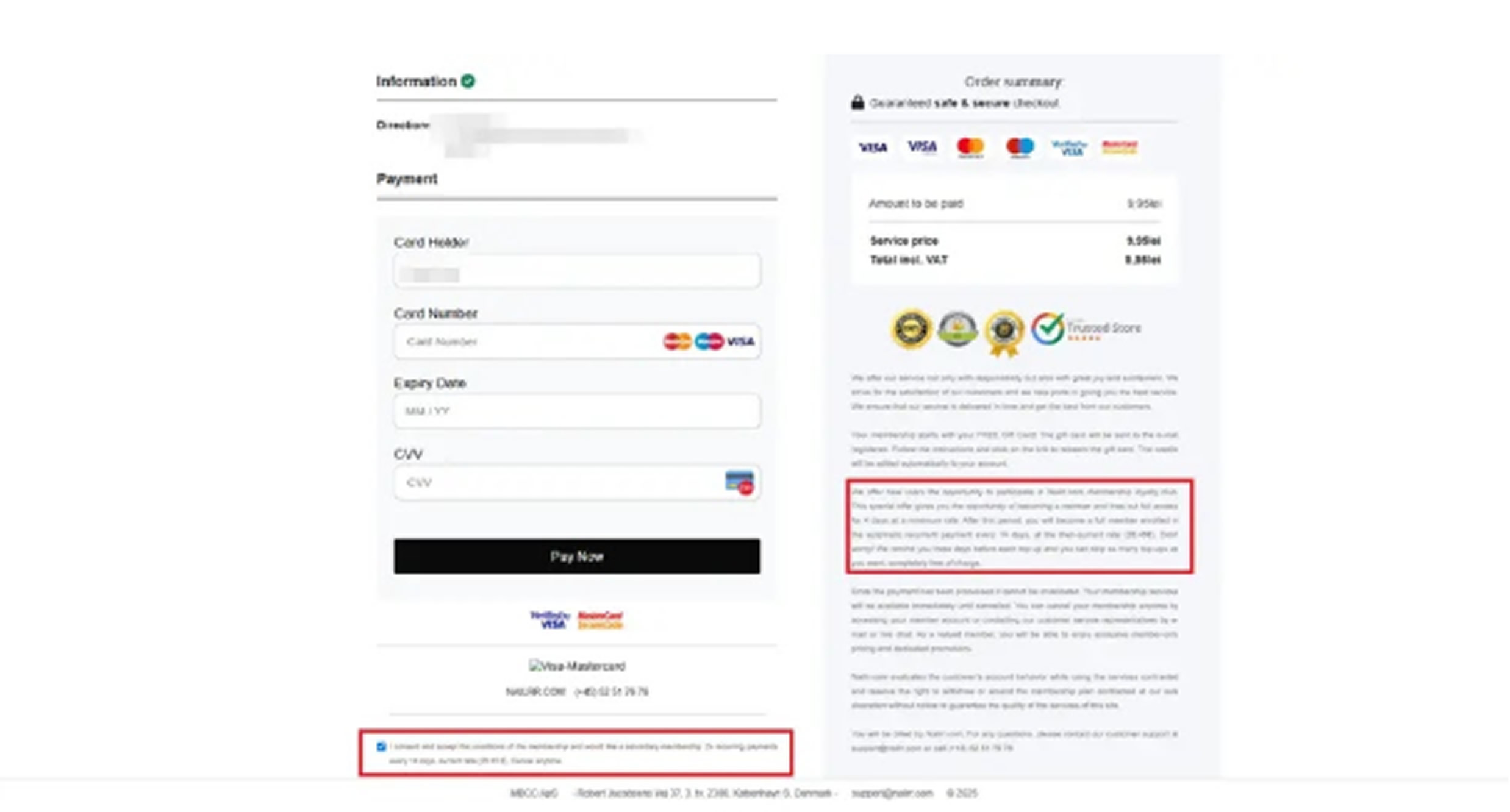Subscription Scam Surge: Sophisticated Online Fraud Targets Credit Card Data
A new wave of deceptive online scams is on the rise, leveraging subscription-based fraud tactics to steal users’ credit card information. These schemes go far beyond traditional phishing, using psychological manipulation and realistic-looking e-commerce websites to deceive victims.
Disguised as genuine online stores offering products like fashion items, electronics, or cosmetics, these sites trick users into signing up for recurring payments. The bait often includes low-cost offers or “mystery boxes” advertised as limited-time deals. However, hidden deep within the checkout fine print is a costly catch: users unknowingly commit to ongoing charges, sometimes as high as €44 every two weeks.
According to cybersecurity experts at Bitdefender, more than 200 such fraudulent websites have been identified, many of which remain active as of April 2025. These scam operations are increasingly sophisticated, employing polished user interfaces and professional branding to build trust with unsuspecting consumers.
"As people become more cyber-aware, scammers are adapting with increasingly complex tactics," Bitdefender notes in its report. These schemes often use Facebook ads to impersonate reputable brands or influencers, drawing users into fake online storefronts.
The Subscription Trap
What sets this scam apart is its layered deception. Once users reach the payment page, they’re presented with a “membership offer” that appears to promise better deals or perks. In reality, this is a disguised subscription agreement buried in small, easily overlooked text. One example includes an automatic top-up fee of €44 every 14 days, misleadingly described as a benefit.

These subscription scams often use a “credit system” to confuse users further, obscuring the actual amount being charged. Many websites involved share visual similarities and registration links to Cyprus, suggesting a coordinated and large-scale cybercriminal operation focused on harvesting financial information.
With these scams becoming harder to spot, cybersecurity experts urge users to be cautious with online deals that seem too good to be true, and to always read the fine print before making purchases online.
Found this article interesting? Follow us on X(Twitter) ,Threads and FaceBook to read more exclusive content we post.


